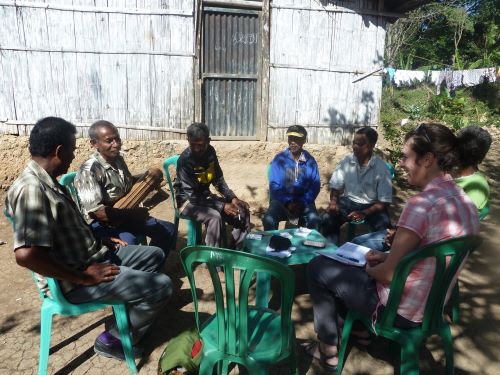About
Advance knowledge and understanding of human diversity and adaptation—past, present, and future—while seeking answers to the most vexing issues and problems affecting our species and our planet.
Quick facts
- Three- or four-year degree options
- Full- or part-time program
- You can enter this program directly from high school
- You can begin this program off-campus
What you will learn

Anthropology is the comprehensive study of human beings, past and present, in comparative, cross-cultural, and holistic light. The anthropology program at the University of Saskatchewan offers training that emphasizes the role of culture in past and present human behaviour and diversity, and that exposes students to human evolutionary, environmental, and social development and adaptation. The program demonstrates particular expertise in medical anthropology, environmental anthropology, applied (practicing) anthropology, anthropological archaeology, environmental archaeology, and bioarchaeology. We emphasize community-based and engaged learning, a commitment to reconciliation, and a broad disciplinary foundation in both anthropology and archaeology.
A first-year schedule sample
Degree programs in Arts and Science are flexible and offer you the opportunity to take courses in many different subject areas. Here’s what a typical first-year schedule might look like:
| Course | Description |
|---|---|
Fall Term |
|
| ANTH 111a | One World Many Peoples Introduction to Cultural Anthropology |
| HIST 115b | History Matters Ideas and Culture |
| ECON 111c | Introductory Microeconomics |
| BIOL 120d | The Nature of Life |
| ENG 114d | Literature and Composition Reading Culture |
Winter Term |
|
| ARCH 112a | The Human Journey Introduction to Archaeology and Biological Anthropology |
| WGST 112d | Introduction to Womens and Gender Studies |
| POLS 112d | Justice and Injustice in Politics and Law |
| GEOG 125d | Environmental Science and Society |
| SOC 112d | Foundations in Sociology Social Construction of Everyday Life |
a Required course for the major
b One of the course options to complete the English Language Writing Requirement
c One of the course options to complete the Quantitative Reasoning Requirement
d One of the course options which may be used in the Breadth, Cognate, and/or Electives Requirements
The Course and Program Catalogue has the complete and official listing of required classes and their descriptions for this program.
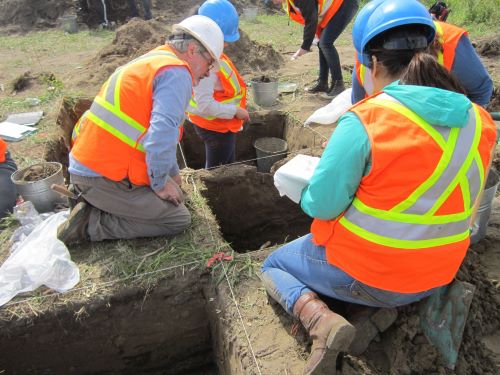
ARCH 361: Archaeological Field Methods
Six weeks of field experience in archaeological research techniques including site survey, excavation, and laboratory analysis. The field location will depend on areas of departmental projects. Offered only in Spring and Summer Session.
ANTH 240: Cultural Landscapes and Environments
This course examines the cultural construction of landscapes, as well as of built and social environments, through a series of topical readings focusing on historical, archaeological, literary, and ethnographic understandings: predominantly of western North American environments, as these places have been known by Aboriginal and non-Aboriginal people.
ANTH 403: Anthropology of Healing
This course exposes students to critical anthropological perspectives on the concepts of healing, health, and well-being. Emphasis is placed on understanding the meaning of healing in cultural context, and on the cultural bases of psychosocial, medical, restorative, and transformational therapeutic processes.
- EXPLORE contemporary and past life ways of people around the globe.
- UNRAVEL the mysteries behind human cultural behaviour across time and place.
- SEARCH for the answers to the complex problems facing humans in a rapidly changing, globalizing world.
- LEARN how we are all different, and how we are all connected!
Understanding what it means to be human – Celebrating diversity
Located on Treaty 6 territory and the homeland of the Métis, the Department of Anthropology is a vibrant department of engaged students and scholars working to advance knowledge and understanding of human diversity and adaptation—past, present, and future—while seeking answers to the most vexing issues and problems affecting our species and our planet. Our mission is to conjoin extraordinary teaching and research to provide students with learning experiences that will contribute to their life-long intellectual and personal development.
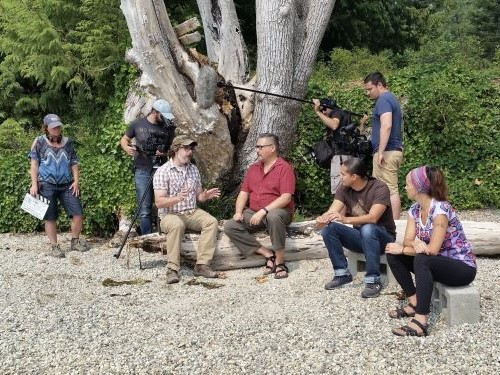
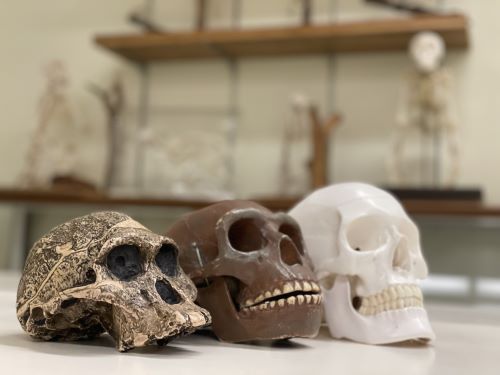
Careers
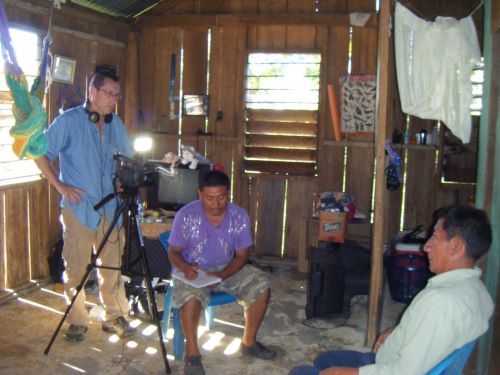
Government sector, working for departments such as health, environment, and cultural resources, social services.- Non-government, social services, and business sectors, working for a range of private companies and organizations focused on, for example:
- research with Indigenous communities and agencies
- social service delivery
- social and cultural policy and program development and implementation
- health and environmental issues
- social and cultural impact assessment
- counseling
- urban planning
- Communications
- Education, as teachers, professors and researchers
- Museum and archives curator
Tuition estimates
| Canadian students | International students | |
|---|---|---|
| Tuition | $8,205 | $39,711 |
| Student fees | $1,308.24 | $1,308.24 |
| Books | $1,500 | $1,500 |
| Total | $11,013.24 | $42,519.24 |
Tuition will vary depending on the type and number of classes you take in a year. This estimate reflects a typical amount you could expect to pay in your first year if you enroll in a full course load, the maximum number of courses allowed (2025–2026 Canadian dollar rates).
Student fees are used to fund specific student benefits, including health, vision and dental coverage, a bus pass, recreational programs and fitness centre access.
The cost of books and supplies varies widely depending on the courses you choose. It is recommended that you budget between $1,500–$2,500 per year.
Program options

These Bachelor of Arts (B.A.) in Anthropology and Bachelor of Science (B.Sc.) in Anthropology degrees are offered by the University of Saskatchewan's College of Arts and Science:
- Bachelor of Arts Four-year
- Bachelor of Arts Three-year
- Bachelor of Arts Honours
- Bachelor of Arts Double Honours
- Bachelor of Science Four-year
- Bachelor of Science Honours
- Bachelor of Science Double Honours
To decide which option is the right fit, you should consult with an academic advisor in the college when you begin your studies.
Admission requirements
Your information
Admission requirements depend on your situation; please tell us about yourself.
Application deadlines
| Start term | Application deadline | International deadline |
|---|---|---|
|
Winter January 2026 |
Dec. 1, 2025 Documents due: Dec. 15, 2025 |
Sept. 1, 2025 Documents due: Oct. 1, 2025 |
|
Spring May 2026 |
April 1, 2026 Documents due: May 1, 2026 |
Feb. 1, 2026 Documents due: March 1, 2026 |
|
Summer July 2026 |
May 1, 2026 Documents due: June 1, 2026 |
March 1, 2026 Documents due: April 1, 2026 |
|
Fall September 2026 |
July 15, 2026 Documents due: Aug. 1, 2026 |
May 1, 2026 Documents due: June 1, 2026 |
|
Winter January 2027 |
Dec. 1, 2026 Documents due: Dec. 15, 2026 |
Sept. 1, 2026 Documents due: Oct. 1, 2026 |
Ready to apply?
Create an admissions account and start your application today. When you are ready to submit your application, you will be assessed a non-refundable application fee of $120 CAD.
Related programs
If you are looking for graduate level (master's or Ph.D.) programs please consult our graduate students' website.

Stay connected
Do you want us to send you important reminders, information about our programs or notifications about USask events?


